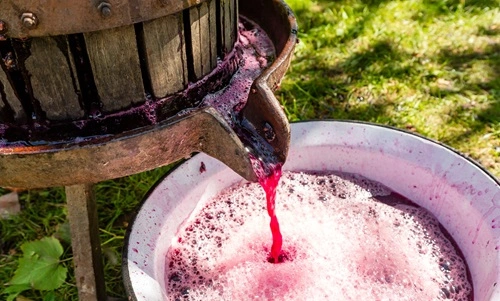No, it is not illegal to make wine for personal use in the United States. Under federal law, adults are allowed to produce a limited amount of homemade wine for personal or family consumption. However, there are strict regulations regarding production limits, sales, and distribution. Violating these laws could lead to significant penalties, including fines and confiscation of equipment.
Federal Regulations on Homemade Wine
1. Legal Framework
- The production of homemade wine is governed by the Alcohol and Tobacco Tax and Trade Bureau (TTB) under the Federal Alcohol Administration Act. The law allows individuals to make wine at home without a permit as long as it is not sold or distributed.
2. Production Limits
- According to federal law, an adult over 21 years of age can produce:
- 100 gallons per year if only one adult resides in the household.
- 200 gallons per year if there are two or more adults in the household.
3. Personal Use Only
- The wine must be for personal use, which includes consumption by family and friends, private parties, and gifting. Commercial production or sale requires proper licensing.
State-Specific Laws on Homemade Wine
1. Varied State Regulations
- While federal law permits homemade wine, state laws may impose additional restrictions. Some states have specific rules about transporting homemade wine or using it in public events.
- Example: Alabama requires a permit for any form of alcohol production, even for personal use.
2. Restrictions on Public Events
- Many states restrict serving homemade wine at public events or competitions without prior approval.
3. Dry Counties
- In some “dry” counties, even personal alcohol production may be restricted, regardless of federal permissions.
Illegal Activities Related to Wine Production
1. Selling Homemade Wine
- Selling wine without the appropriate federal and state licenses is strictly prohibited. Violating these laws can result in fines, imprisonment, and seizure of production equipment.
2. Exceeding Production Limits
- Producing wine beyond the federally allowed limits for personal use without a license is illegal.
3. Distillation of Spirits
- It is important to note that while homemade wine production is legal, distilling spirits (e.g., brandy) from wine without a license is a federal offense.
Licensing Requirements for Commercial Winemaking
1. Federal Licenses
- To sell wine, producers must obtain a federal permit from the TTB, which includes detailed record-keeping and compliance with labeling regulations.
2. State Permits
- States also require specific licenses for commercial wine production and distribution. These permits often include inspections and zoning approvals.
3. Taxation
- Commercial wine producers are subject to excise taxes based on the volume of wine sold.
Health and Safety Considerations
1. Quality Control
Homemade wine must be made under clean and controlled conditions to avoid contamination or spoilage.
2. Alcohol Content
Federal law does not restrict the alcohol content of homemade wine, but excessively high levels may raise safety concerns.
Common FAQs
Q1. Can I make wine at home without a license?
Ans: Yes, as long as the wine is for personal or family use and production stays within the federally allowed limits.
Q2. Is it legal to sell homemade wine?
Ans: No, selling homemade wine without proper licensing is illegal.
Q3. Can I give homemade wine as a gift?
Ans: Yes, gifting homemade wine is permitted under federal law as long as it is not sold or used for promotional purposes.
Q4. Do I need to pay taxes on homemade wine?
Ans: No, federal excise taxes apply only to commercially produced wine.
Q5. Can I transport homemade wine across state lines?
Ans: Generally, yes, but some states may have restrictions, so it’s important to check local laws.
Q6. What happens if I exceed the production limit?
Ans: Exceeding federal limits without proper licensing is a violation and may result in fines or penalties.
Conclusion
Making wine at home for personal use is legal under federal law, provided you adhere to production limits and do not sell or distribute it. State laws may add additional requirements or restrictions, so it is essential to familiarize yourself with local regulations. While winemaking can be an enjoyable hobby, ensuring compliance with federal and state laws is crucial to avoid legal consequences.


